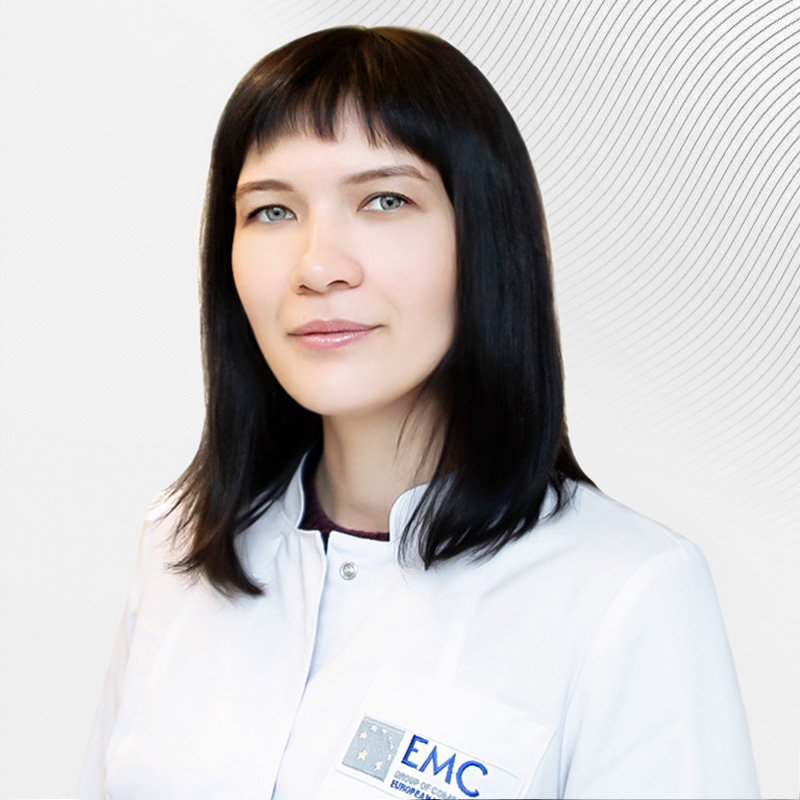Magnetic resonance imaging (MRI)
- The possibility of conducting research in patients with large physiques;(up to 180 kg).
- MRI is performed for both adults and children, including newborns.
- The clinic uses modern equipment - 1.5 Tesla and 3 Tesla 4G magnetic resonance imaging
- The study can be conducted under medical sleep;(under anesthesia) - the clinic employs experienced anesthesiologists who will help to conduct informative research even in small patients or in patients with a fear of confined spaces (claustrophobia).
- The results of an MRI scan of the spine are evaluated by two radiologists, if necessary.;(one of whom is a specialist in a specific anatomical area), after which the patients are given a final conclusion.
- Complex diagnostic cases are discussed within the framework of interdisciplinary consultations (with the participation of doctors of different specialties).
- EMC doctors use the PACS medical information system, in which all research data is archived for at least 10 years. For patients, this is an opportunity not to worry about the safety of the images, and for their attending physicians, to view the images remotely and monitor the patient's condition over time during repeated visits.
About the study
Magnetic resonance imaging (MRI) is a study that allows you to obtain images of any part of the human body in any plane with the highest contrast of soft tissues.
Unlike computed tomography (CT), this type of examination is completely devoid of radiation exposure; to obtain an image, alternating magnetic fields and radio frequency pulses are used instead of X-rays.
The EMC has magnetic resonance imaging devicesSiemens MAGNETOM Aera 1.5 T and 3 T– high-techmedical devices of a new generation with a wide tunnel aperture, which makes the study comfortable for the patient.
Contraindications to MRI
The absolute contraindications to MRI are the presence of MR-incompatible pacemakers, insulin pumps, and other devices that affect the body (rhythm regulation, drug administration, etc .).
Also, you can not conduct a study in the first trimester of pregnancy.
Types of research
The European Medical Center conducts MRI examinations of all organs and body systems.:
-
MRI of the brain and spinal cord is used to diagnose injuries and their consequences, inflammatory diseases, as well as tumors, benign or malignant.
- MRI of the brain in case of suspected stroke
- MRI of the brain substance, angiography of the arteries, veins of the brain and vessels of the neck
- MRI of the pituitary gland
- MRI of the bridge-cerebellar angles
- MRI of the soft tissues of the neck and head
- MRI of the spine allows you to see various diseases, ranging from osteochondrosis to herniated disc. Inflammation and injury can also be detected by MRI of the spine.
- MRI of the musculoskeletal system
- MRI of joints, in particular, MRI of the knee joint is an opportunity to determine why the joint hurts, moves stiffly or clicks when moving. On the virtual slice, you can clearly see what the cause of the unpleasant sensations is.
- MRI of the knee joint is the most popular type of examination. The thing is that the knee joint is a complex system in which damage to even one of its elements leads to unpleasant consequences.
- MRI of the foot and hand
- MRI of the mammary glands (including screening)
- MRI of the skeleton
- MRI of the abdominal cavity and retroperitoneal space
- MRI of the heart
- MRI of the mediastinum
- MRI of orbits
- MR-neurography
- Pelvic MRI
- Liver MRI
- MRI of the prostate
- MRI of the external genitalia
- MRI of the anorectal area
- MR angiography of the arteries and veins of the brain
- MR angiography of the vessels of the neck
- MR angiography of the arteries of the pelvis and lower extremities
- MR angiography of the abdominal aorta and its branches
- MR angiography of the arteries of the lower extremities
- MR pelviometry of the pelvic organs
Preparation
MRI with intravenous contrast
The procedure is performed no earlier than 2-3 hours after eating. It is allowed to take medications (drink a small amount of water). It is necessary to arrive at the department 30 minutes before the start of the study.
MRI of joints
It is necessary to arrive at the department 20 minutes before the start of the study. If necessary, before the procedure, an intra-articular contrast is performed by a traumatologist - the introduction of a special, safe contrast into the joint cavity.
MRI of the pelvic organs with contrast
Within 2 days before the study, it is necessary to follow a slag-free diet. It is not recommended to consume legumes, black bread, milk, carbonated drinks, vegetables, fruits, semi-finished products, sweets. Buckwheat, oats, lentils, rice, tea, fermented dairy products (if there is no intolerance), lean meat, fish, vegetable soups are allowed. The procedure is performed on an empty stomach or no earlier than 3-4 hours after eating. It is allowed to take medications (drink a small amount of water). In the morning before the examination, a cleansing microclyster is performed, and 45 minutes before the start of the examination, the bladder must be emptied. For women, the procedure is performed on the 5th-7th day of the menstrual cycle (unless otherwise prescribed).
Breast MRI with contrast
The procedure is performed no earlier than 3-4 hours after eating. It is allowed to take medications (drink a small amount of water). The study is performed on the 5th- 14th day of the menstrual cycle.
Magnetic resonance cholangiopancreatography (MRCPG)
The procedure is performed strictly on an empty stomach or no earlier than 6 hours after eating. 3 hours before the study, it is necessary to refrain from taking any liquid.
MRI of the liver with contrast
The procedure is performed on an empty stomach or no earlier than 3-4 hours after eating. It is allowed to take medications (drink a small amount of water). 2 hours before the study, it is necessary to refrain from taking any liquid.
MRI of the prostate (possible endocrine examination)
The procedure is performed on an empty stomach or no earlier than 3-4 hours after the last meal. It is allowed to take medications (drink a small amount of water). A slag-free diet should be followed 2 days before the study. It is not recommended to consume legumes, black bread, milk, carbonated drinks, vegetables, fruits, semi-finished products, sweets. Buckwheat, oats, lentils, rice, tea, fermented dairy products (if there is no intolerance), lean meat, fish, vegetable soups are allowed. In the morning before the examination, a cleansing microclyster is performed.
MRI of the small intestine
The procedure is performed on an empty stomach or no earlier than 3-4 hours after the last meal. It is necessary to arrive at the examination 30-40 minutes before the scheduled time. Within 40 minutes, you will need to drink 2 liters of Fortrans solution (1 package per 1 liter of water) or mannitol (200 ml per 1.5 liters of water), 150-200 ml every 5 minutes (issued at the department). Immediately before the examination, 1 ml of glucagon will be administered intramuscularly in order to temporarily suppress peristalsis.
Important! Do not forget to bring all the extracts, descriptions, conclusions, and films (discs) of previously conducted research. The more information the radiologist has before the examination, the clearer the task assigned to him. In addition, the previous results will allow us to assess the dynamics of the disease.
Important! It is not allowed to take metal or magnetic objects or electronic devices into the office with the MRI machine. Piercings, jewelry, glasses and pens, dentures, hairpins, pins, metal fasteners, mobile phones, hearing aids, credit cards, colored contact lenses — you can leave all this in our individual changing booths equipped with safes. You will be offered disposable clothes and slippers.
The cost of an MRI
You can view the list of studies and the cost of MRI at the European Medical Centerhere.
An MRI scan can be performed around the clock, on weekends and holidays.
Doctors
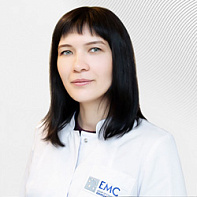
.jpg)
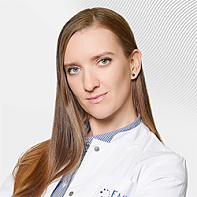
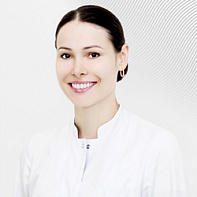
.jpg)
.jpg)
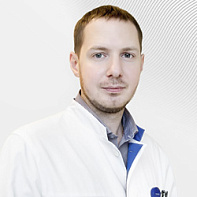
.jpg)
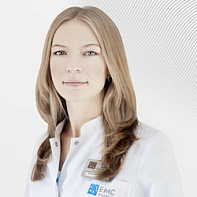
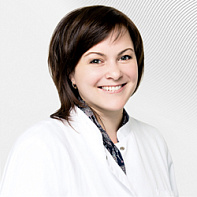
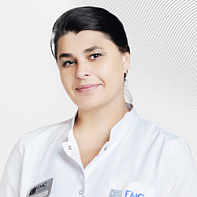
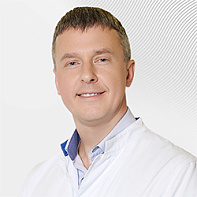
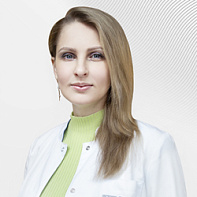
.jpg)
.jpg)
- Expert in the field of conducting CT and MRI examinations
- She graduated from the I.M. Sechenov Moscow Medical Academy, completed her clinical residency at the N.N. Blokhin Russian Research Center, Department of Radiation Diagnostics and X-ray Surgical Methods of Treatment
- Completed the Advanced Oncological Imaging course at the European School of Radiology (Vienna, Austria)
